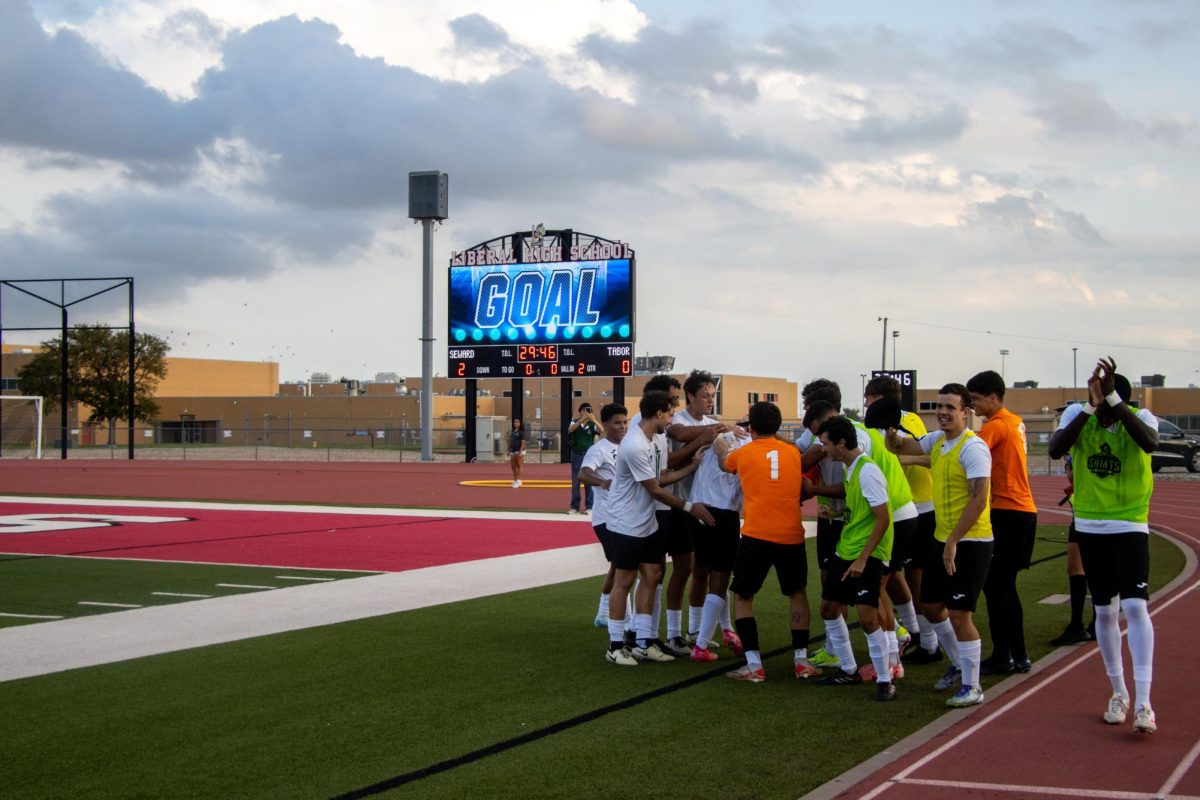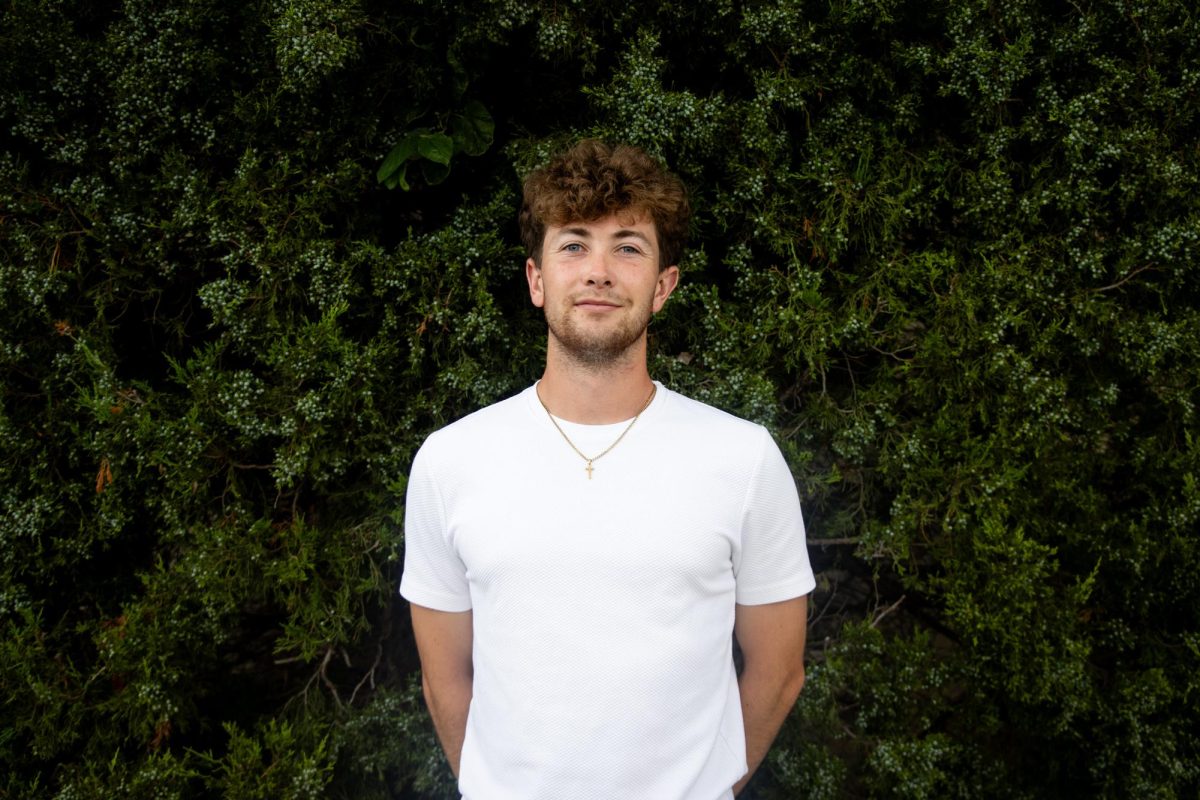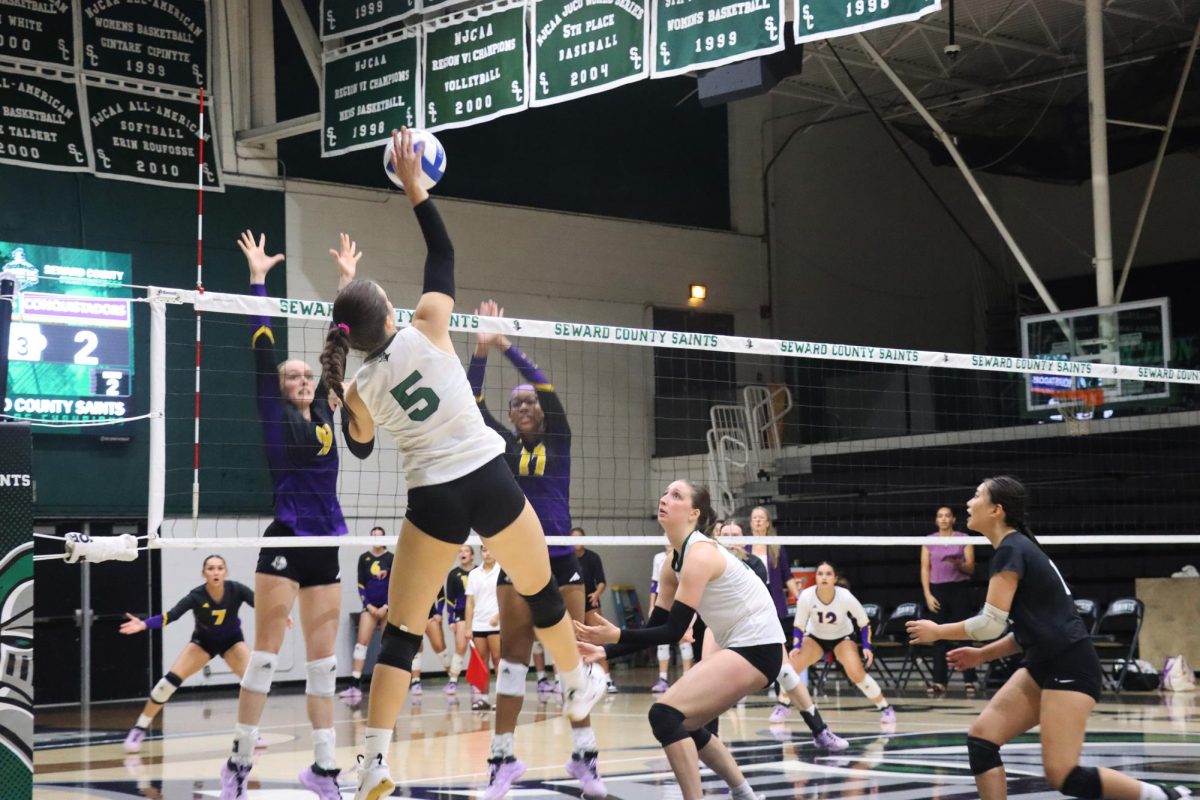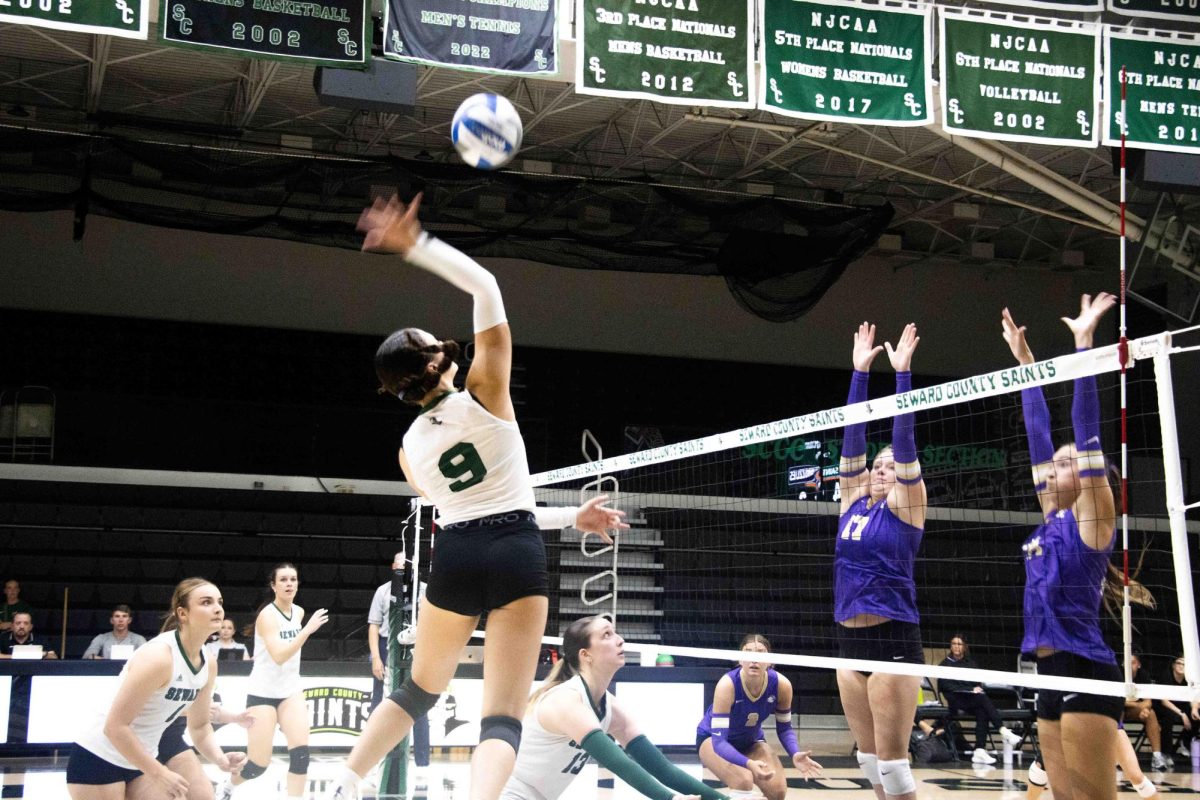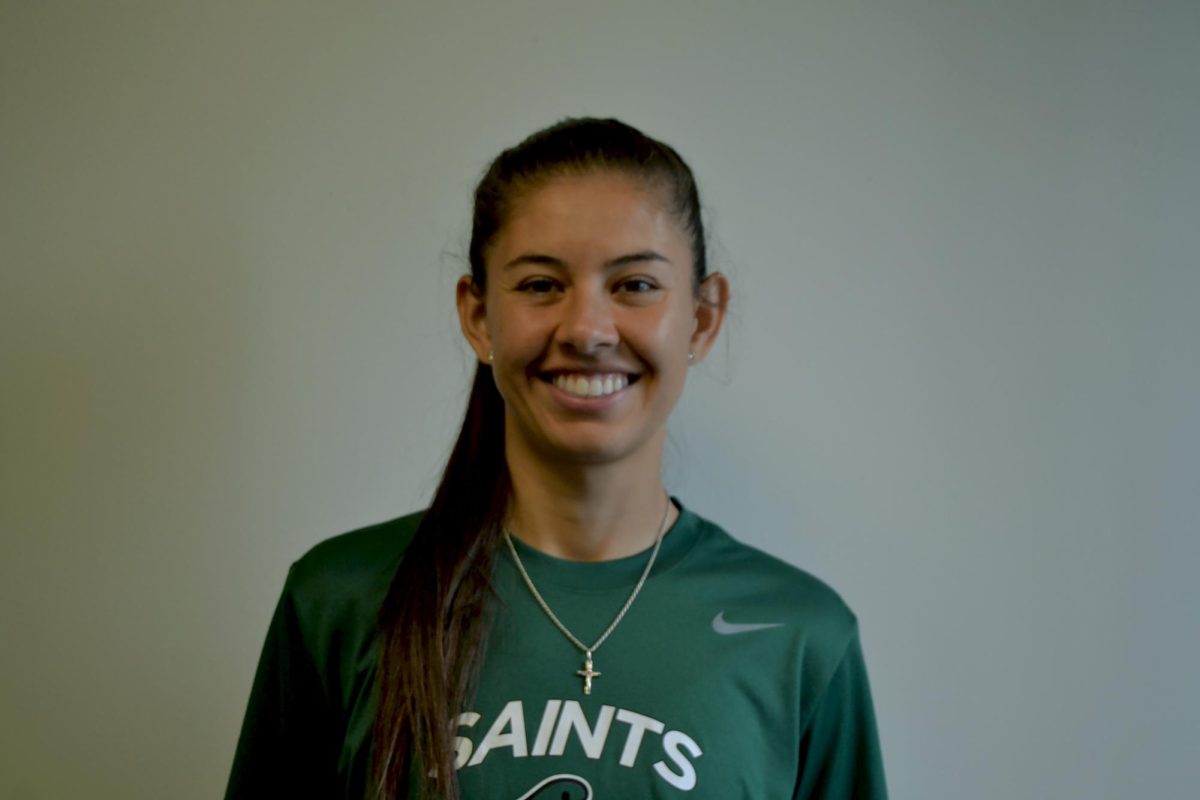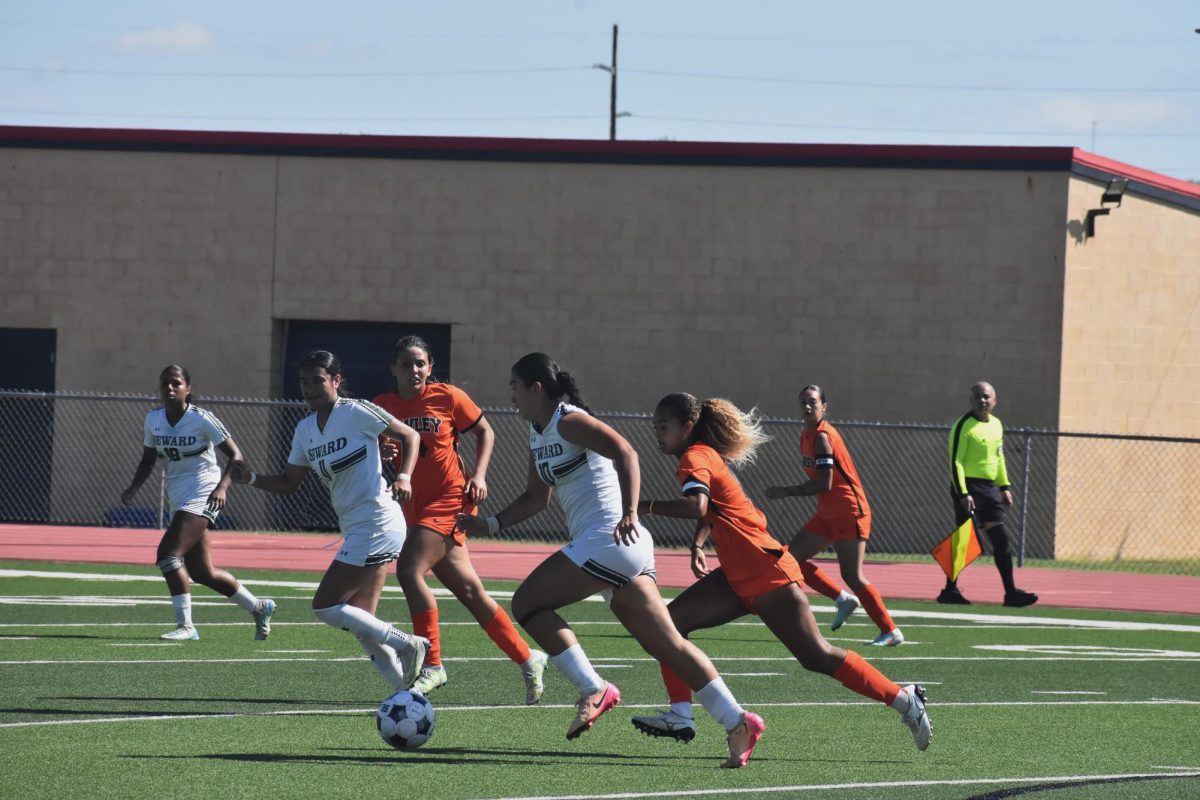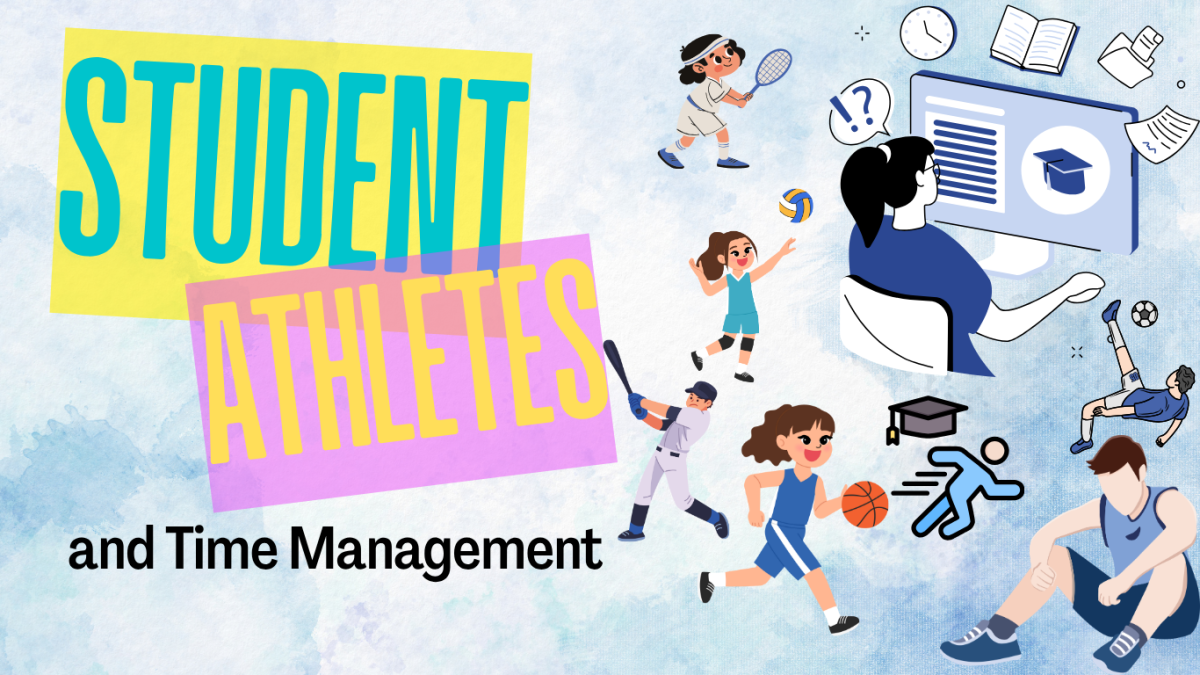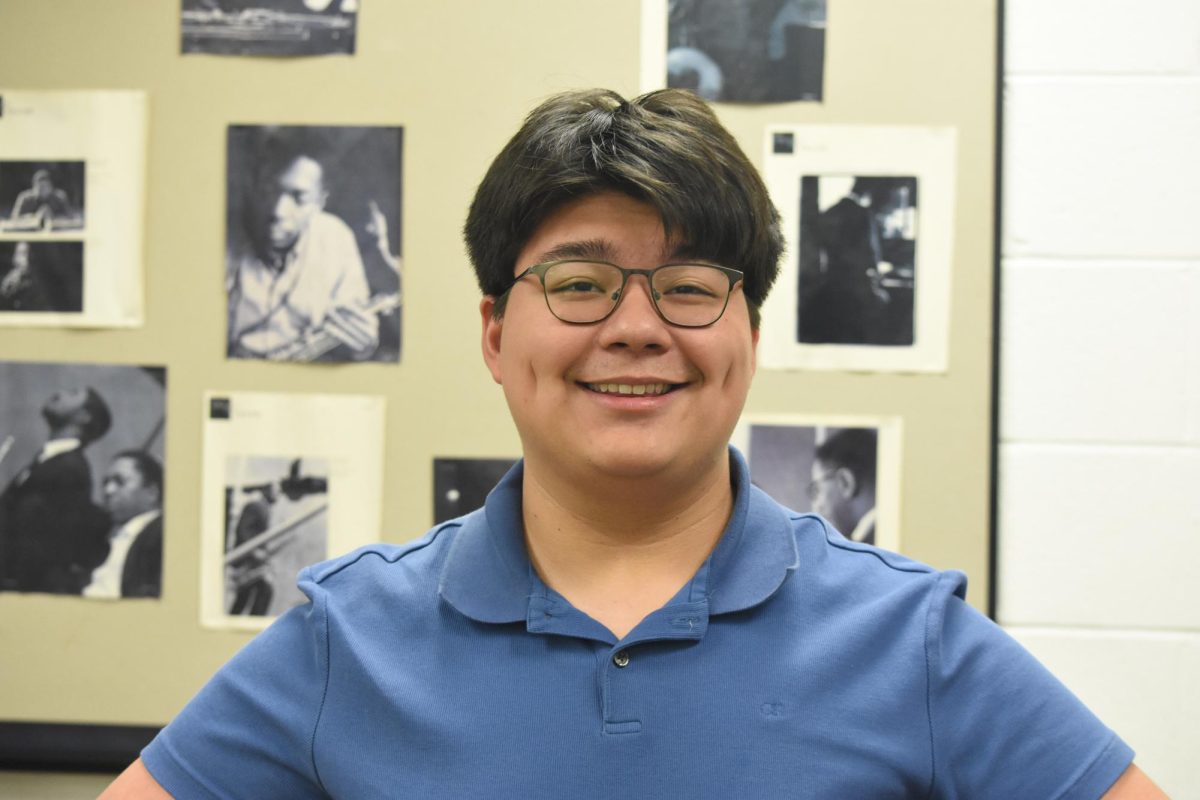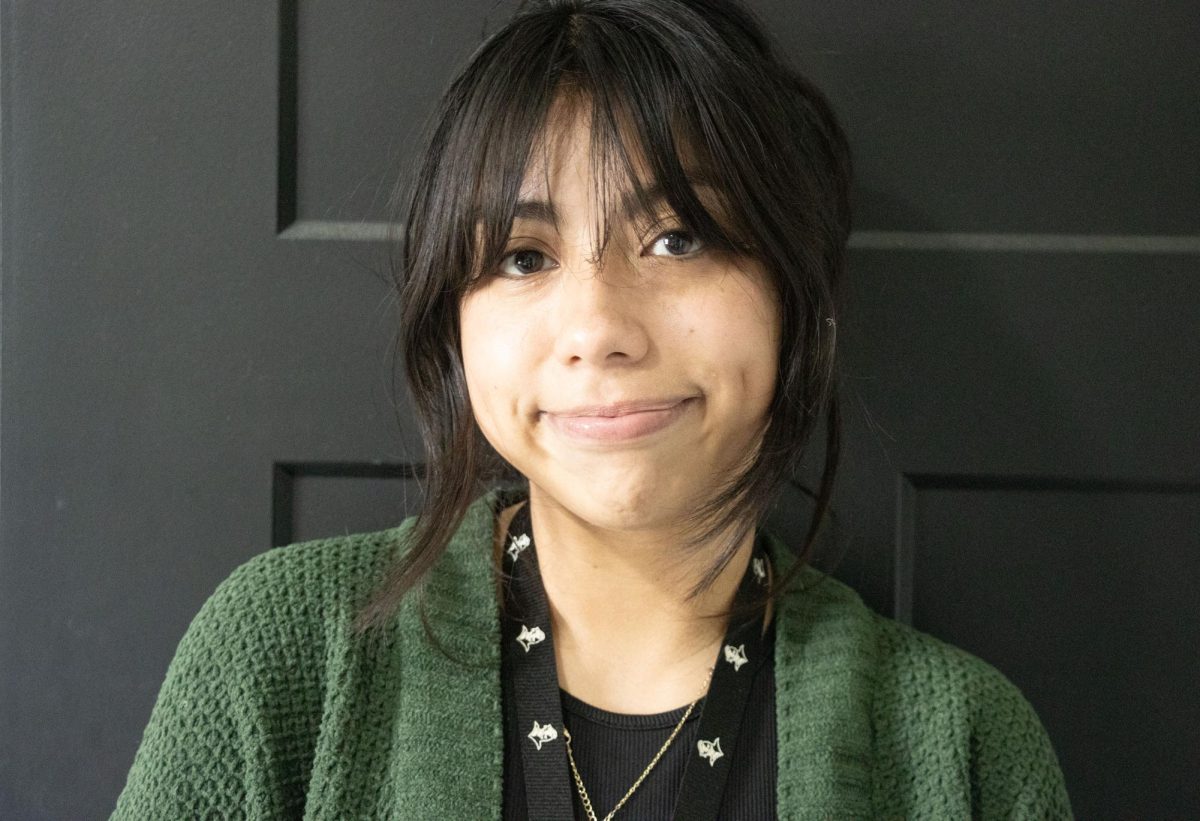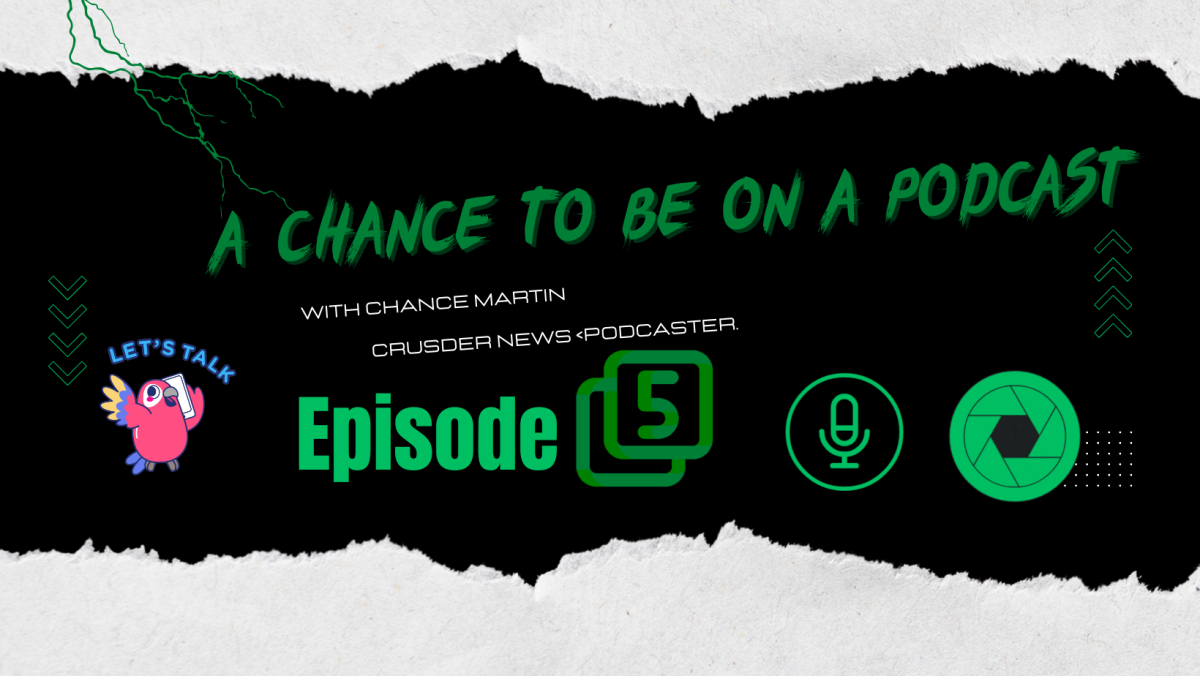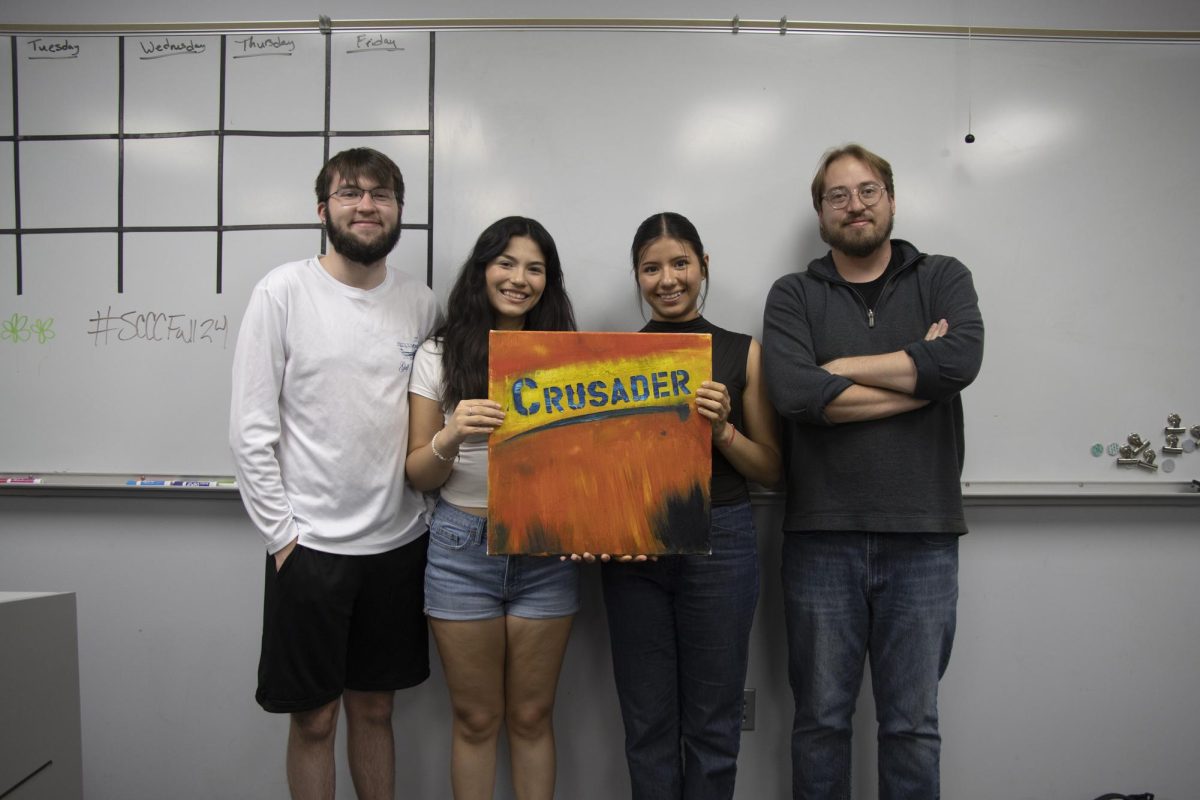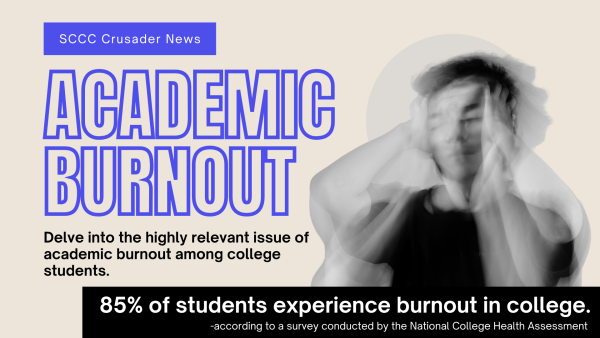
As the finals season approaches, academic burnout becomes inevitable for some college students. Academic burnout is a state of chronic stress that affects the physical, emotional, and mental well-being of a student. Burnout can come from different sources, and students can show and experience burnout differently, but ultimately, burnout can potentially seriously affect students and their performance in the present and even the future. However, there are ways to overcome it if they know how.
Students can struggle to prioritize work because of the lack of motivation from work overloading them, hence taking on too much – so much, in fact, that it shows. Russ Reglin, a behavioral science instructor at Seward County Community College, notices burnout as “difficulty focusing, difficulty prioritizing, difficulty putting the time in, lack of desire.” According to Reglin, early signs of burnout include,” missing class, leaving, turning in work that is… subpar for how they usually turn work in as far as quality, [and] excuses as to why they can’t do this or can’t be there or couldn’t study.”
“Burnout is when… it’s not fun anymore, at least not tolerable…when we take on too much,” Reglin says. “We overestimate our ability to do that, which is really more than what we should try.”
Students have different interpretations of academic burnout. Gisel Torango Morales, a political science major, defines burnout as “when you have so much stuff going on. You don’t even know where to start, where to end, what to even do, so you just crash.”
Another student, Kihara Amparan, an engineering major, defines burnout as “you just work too hard, too fast, and just never stop to the point where you’re just exhausted whenever you have to still keep going.”
This period is challenging as students do not just handle multiple assignments, but also outside activities that affect academic performance and responsibilities. Involvement in clubs, relationships with family and friends, participation in sports, and employment can make it challenging for students at SCCC to manage their workload.
“The process of college and your employment and all that is very stressing, especially when you have to work,” Morales said.
For some students like Amparan, they juggle many of these responsibilities and yet still want to do more despite an overloaded schedule. Already the STEM Club president, Amparan wants to do more at SCCC, but barely has time.
“I have classes all morning, and then after school, I have to go straight to work, and after work, I have to get, like, groceries, go to the gym, do everything else that comes in between all that, so I just don’t have time,” Amparan said.
Another outside factor worth discussing is pressure. The expectation from others or even oneself can cause tremendous stress on a student’s ability to succeed and affect a student’s ideas for the future.
“I do feel pressure, as your progress here will follow you to any other institutions you may want to go to in the future,” Morales said. “I think pressure from within, to be better.”
Amparan also experiences pressure to succeed academically.
“Honestly, I do feel pressured to succeed academically mainly because I’ll be the first in my family to complete or even go to college,” Amparan said. “It honestly makes me feel like it’s mandatory for me to look like a perfect student with perfect grades and act like I’m not stressed with all of my classes that I am taking.”
She continues by saying: “I feel like the way my family and extended family try to put me on a pedestal. The feeling of needing to exceed their expectations and still balance every single aspect of my personal life. It feels almost overwhelming.”
Many college students feel unsure about their future careers and often worry that they are falling behind. Amparan expresses she feels behind in her decided career path of chemical engineering.
“Yeah, whenever I look at other people around my age group who are doing so much more than… I am, or… just succeeding more in a certain field, or the same field that I’m trying to go into, like, early on,” Amparan said. “I started just straight after high school, and they’ve been going for it since high school freshman year.”
Also, students who start their education at a community college often feel like they’re falling behind compared to those who immediately enroll in a four-year university. Despite the numerous benefits and opportunities that community colleges offer, this perception can create unnecessary pressure and anxiety.
“Yes, all the time, you see all these people that are already at four years, or already have a career going on, and you’re still starting out,” Morales said. “It’s kind of stressful.”
Ultimately, the uncertainty about the future contributes to pressure, making the expectation to succeed in a student’s future career appear intimidating.
“Yes, it’s intimidating, especially because you’re not guaranteed… like your Plan A, Plan B, Plan C… just makes me fearful for the future in that aspect,” Amparan said.
While academic burnout is a significant challenge for many college students, there are effective ways to manage and overcome it. By taking advantage of resources and or de-stressing methods, students can reduce burnout and improve their overall well-being. Embracing these strategies not only helps students navigate their academic responsibilities but also empowers them to enjoy their college experience and look forward to a bright future.
There are resources available at SCCC for students to make the load easier: the TRiO program, counseling, tutoring, and even staff. SCCC even hosts de-stress weeks that take place every year for finals. This year’s “Chill Week” consists of crafts, gift giveaways, and even free massages.
Reglin states what he thinks is a beneficial resource for students. He says the “Fitness Center would be one. Just get on the treadmill… just takes half an hour. Doing something where you’re just spending some sweat and energy… for your body, and not just brain stuff. Our brains get… exhausted cognitively. Do yourself some good.”
As a student, Amparan benefits from tutoring. “Tutoring, It’s intimidating, but sometimes you need to go if you just really don’t understand what you’re learning, or you just need an extra like mind to help you understand further what you’re learning,” says Amparan.
Receiving tutoring has proven beneficial. As Amparan focused on her Calculus, she says, “Rodrigo [Gamarra Calvijo, a tutor for TRiO] explained everything very well. I think I understood him more than whenever I was in class, because of all the extra examples he would give me and his explanations.”
Outside of resources, students can practice their own personal de-stress methods to help their well-being. For example, students such as Amparan acknowledge the importance of taking a break during a stressful time.
“I… make myself believe I just need to work hard for my future but also take a breather here and there,” Amparan said. “It’s hard when you have, like, 80 assignments to complete within the week. I’m exaggerating on the 80 assignments but you get what I mean.”
From Amparan’s experience, she also de-stresses by “reading a book or sleeping just trying to get that out of my mind, out of my system for a little bit.” Morales decreases stress by “listening to music and rewinding my brain a little bit.”
According to Morales, even just a quick check-in with family and friends can make all the difference in her academic performance.
“I think your family has a lot to do with it if they support you, or ask about how school is going, or even work, or any activities that you might do…also your friends,” Morales said. “ I think that affects everything academically.”
For more information about the available resources at SCCC contact the Student Support Services at [email protected].



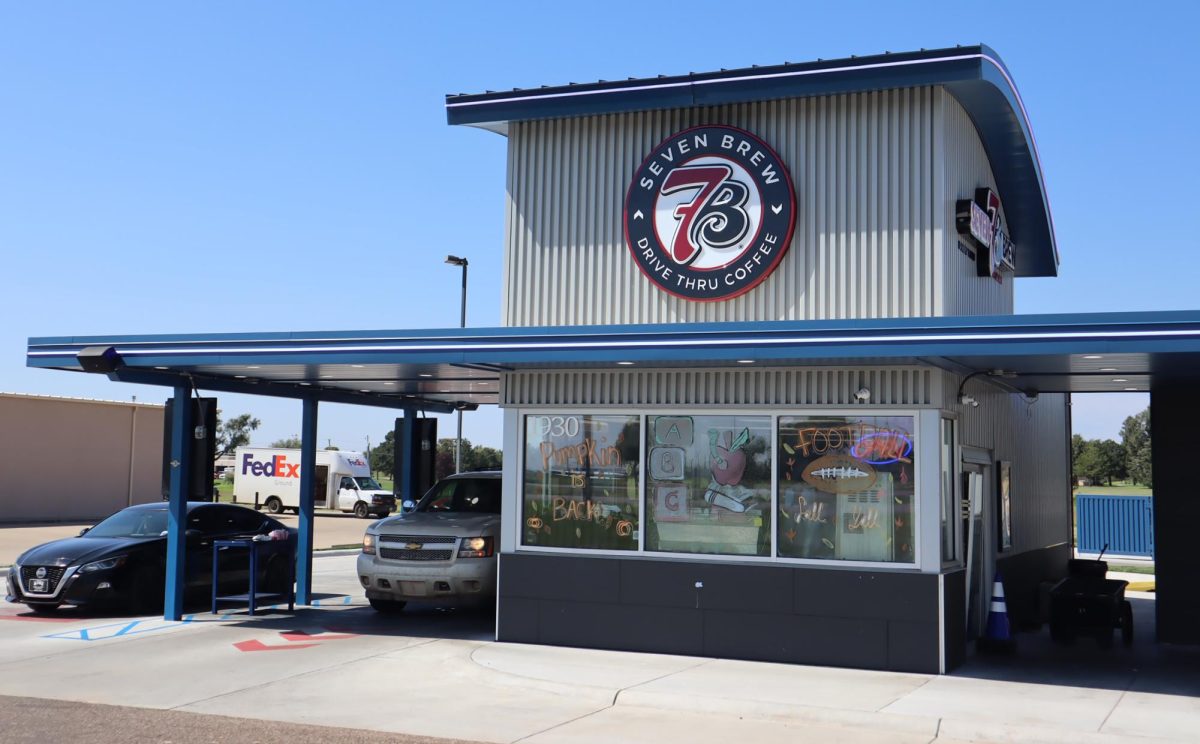










![The sophomores were recognized on the field instead of walking across the stage during their doubleheader. They received their diplomas and a picture of themselves playing during their career at Seward. [Pictured left to right are Dylan Day, Reed Thomas, Jase Schneider, Mason Martinez, Gannon Hardin, Brody Boisvert, and Zach Walker]](https://crusadernews.com/wp-content/uploads/2022/05/WEBDSC_0275-900x454.jpg)





